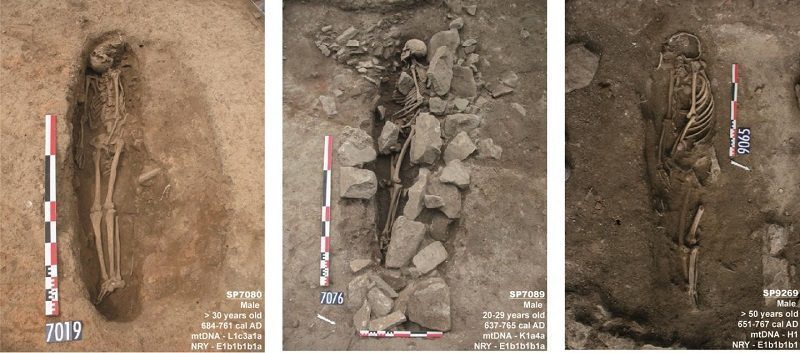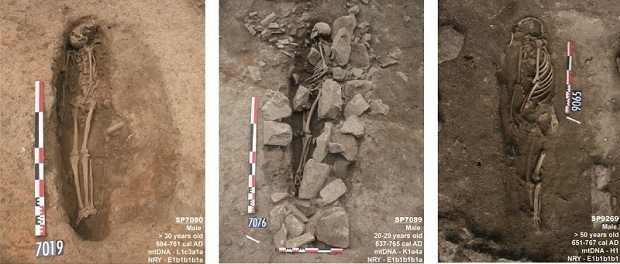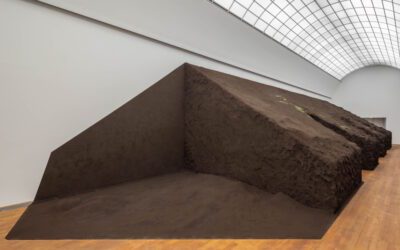[dropcap style=”font-size:100px; color:#992211;”]W[/dropcap]hilst (what’s left of) Spain’s aspirational classes already do their utmost (in ‘What Have the Romans Ever Done For Us?’ style) to gloss over the resplendent Islamic heritage of their country, one might expect a more embracing approach from the constitutionally faith-blind French, hmm?
Potential evidence for medieval Islamic expansion into l’Hexagone may test that theory in these unsettled times. Perhaps hard-right presidential hopeful (and Le Pen political dynasty scion) Marion Marechal-Le Pen will console herself with the fact that these are possibly the remains of dead Muslims.
Presumably, her favourite kind.
Archaeological and genetic analysis may indicate that three skeletons buried in medieval graves in France may have been Muslim, according to a study published February 24, 2016 in the open-access journal PLOS ONE by Yves Gleize from the French National Institute for Preventive Archaeological Research (Inrap) and University of Bordeaux, France, Fanny Mendisco from University of Bordeaux, France, and colleagues.
The rapid Arab-Islamic conquest during the early Middle Ages led to major political and cultural changes in the Mediterranean. Although the early medieval Muslim presence in the Iberian Peninsula is well documented, scientists have less evidence of the Muslim expansion north of the Pyrenees. The authors of this study aimed to determine if the skeletons in three graves from a medieval site at Nimes, France are related to the Muslim presence in France in the 8th century. Specifically, they analyzed the funerary practices at the site, analyzed the skeleton’s DNA, and determined the sex and age of the skeletons.
The authors found that the burials appear to follow Islamic rites, including the position of the body and the head orientation towards mecca. They also found genetic evidence indicating their paternal lineage may show North African ancestry. Radiocarbon dating shows that the skeletons were likely from the 7th-9th centuries. Given all of these data, the authors propose that the skeletons from the Nimes burials belonged to Berbers integrated into the Umayyad army during the Arab expansion in North Africa in the 8th century. Despite the low number of Muslim graves discovered, the authors believe that these observations provide some of the first archeological and anthropological evidence for Muslim communities in the South of France.
Dr. Gleize added, “The joint archaeological, anthropological and genetic analysis of three early medieval graves at Nimes provides evidence of burials linked with Muslim occupation during the 8th c. in south of France.”
Source: Eurekalert/PLOS ONE
Image by Gleize et al.

Some of the news that we find inspiring, diverting, wrong or so very right.





















